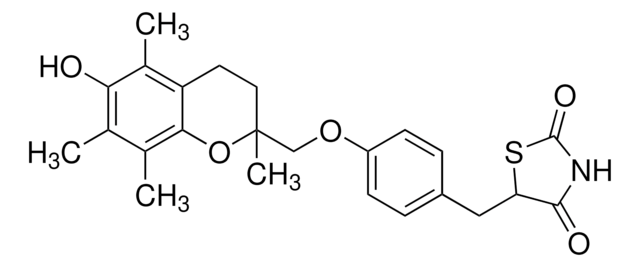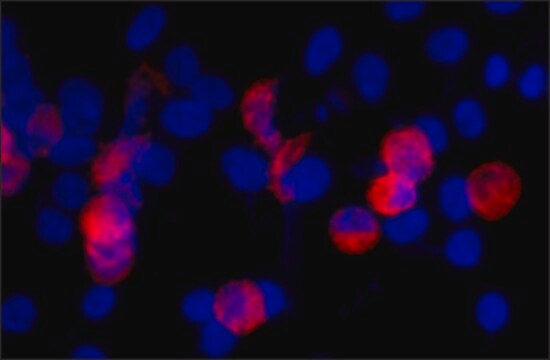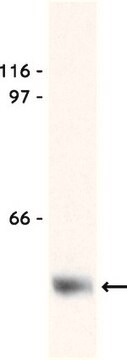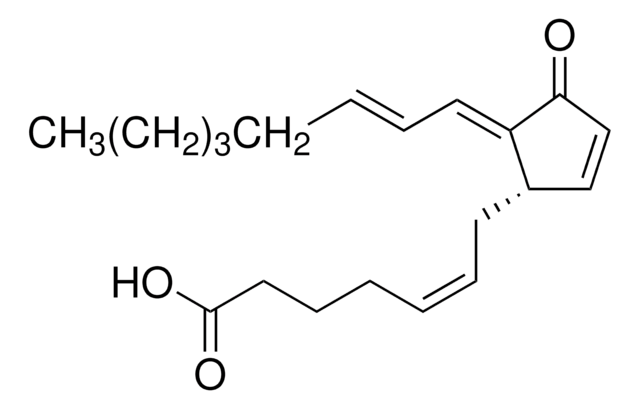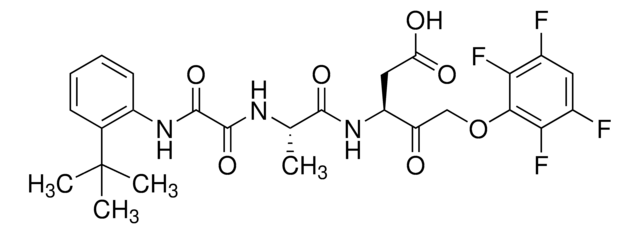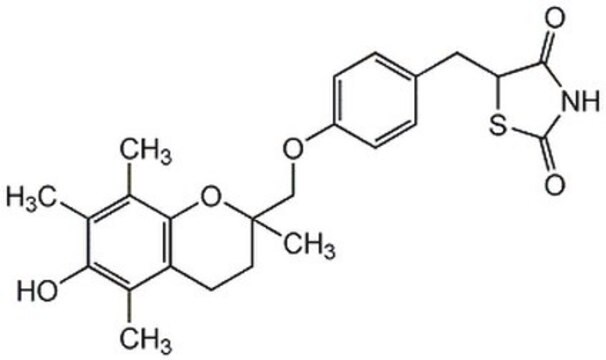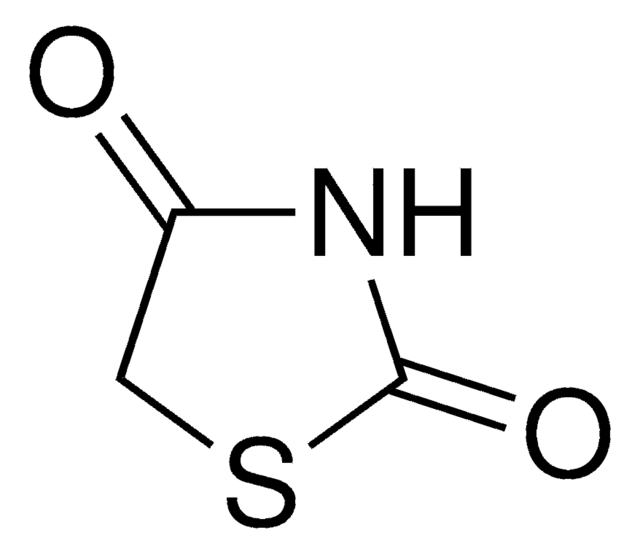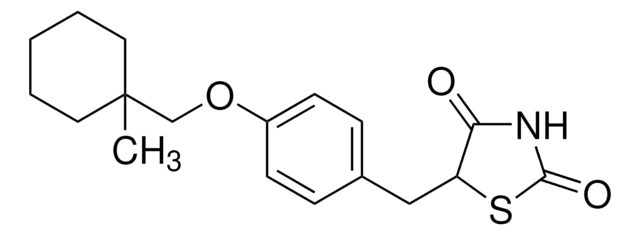E6910
Pioglitazone hydrochloride
≥98% (HPLC), powder, hepatic gluconeogenesis blocker
Synonyme(s) :
5-[[4-[2-(5-Ethyl-2-pyridinyl)ethoxy]phenyl]methyl]-2,4-thiazolidinedione monohydrochloride
About This Item
Produits recommandés
product name
Pioglitazone hydrochloride, ≥98% (HPLC)
Pureté
≥98% (HPLC)
Forme
powder
Couleur
white to off-white
Solubilité
DMSO: ≥10 mg/mL
Auteur
Takeda
Température de stockage
room temp
Chaîne SMILES
Cl.CCc1ccc(CCOc2ccc(CC3SC(=O)NC3=O)cc2)nc1
InChI
1S/C19H20N2O3S.ClH/c1-2-13-3-6-15(20-12-13)9-10-24-16-7-4-14(5-8-16)11-17-18(22)21-19(23)25-17;/h3-8,12,17H,2,9-11H2,1H3,(H,21,22,23);1H
Clé InChI
GHUUBYQTCDQWRA-UHFFFAOYSA-N
Informations sur le gène
human ... PPARG(5468)
Vous recherchez des produits similaires ? Visite Guide de comparaison des produits
Description générale
Application
- to administer to mice model and treated the hepatoma cell line to study its effect on regulating insulin-degrading enzyme (IDE) in diet-induced obese (DIO) C57BL/6 mice
- in drug preparation to analyze its effects on shortening and calcium transport in ventricular myocytes from the Goto-Kakizaki (GK) type 2 diabetic rat
- to treat HepG2 cells with peroxisome proliferator-activated receptor γ (PPARγ) agonists to examine its effect on TOMM40-, APOE- and APOC1-mRNA levels
Actions biochimiques/physiologiques
Caractéristiques et avantages
Mention d'avertissement
Warning
Mentions de danger
Conseils de prudence
Classification des risques
Acute Tox. 4 Oral - Carc. 2
Code de la classe de stockage
11 - Combustible Solids
Classe de danger pour l'eau (WGK)
WGK 3
Point d'éclair (°F)
Not applicable
Point d'éclair (°C)
Not applicable
Certificats d'analyse (COA)
Recherchez un Certificats d'analyse (COA) en saisissant le numéro de lot du produit. Les numéros de lot figurent sur l'étiquette du produit après les mots "Lot" ou "Batch".
Déjà en possession de ce produit ?
Retrouvez la documentation relative aux produits que vous avez récemment achetés dans la Bibliothèque de documents.
Les clients ont également consulté
Notre équipe de scientifiques dispose d'une expérience dans tous les secteurs de la recherche, notamment en sciences de la vie, science des matériaux, synthèse chimique, chromatographie, analyse et dans de nombreux autres domaines..
Contacter notre Service technique
